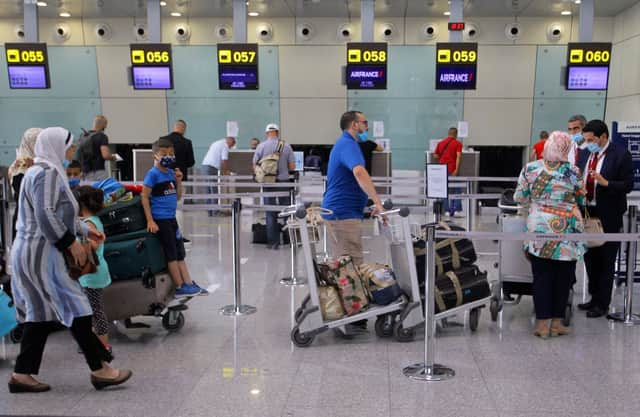European holidays at risk for millions of Brits given Indian-made AstraZeneca jab
This article contains affiliate links. We may earn a small commission on items purchased through this article, but that does not affect our editorial judgement.


Millions of Brits may be at risk of being blocked from taking European holidays this summer because their AstraZeneca vaccines are not recognised by the EU, it has been reported.
Up to five million doses of the AstraZeneca jabs administered in the UK currently do not qualify for the EU’s passport scheme as they were manufactured in India.
Which batches are affected?
Advertisement
Hide AdAdvertisement
Hide AdThe EU still does not recognise a version of the AstraZeneca vaccine called Covishield, which is produced by the Serum Institute of India.
The doses were administered to up to five million people in the UK, but have not yet been approved by the European Medicines Agency (EMA), which regulates vaccinations in the bloc.
UK tourists who have been given the Indian-made doses would be flagged up at the EU border and could face being denied entry.
The EU Digital Covid Certificate is now in operation to allow travel without quarantine, but it would not recognise the Indian-made AstraZeneca vaccines with the batch numbers 4120Z001, 4120Z002 and 4120Z003.
Advertisement
Hide AdAdvertisement
Hide AdThese also appear on recipient’s cards after being vaccinated and on the Covid travel pass on the NHS App, which is currently being used as a digital vaccination certificate for foreign travel.
The Pfizer, Moderna, Johnson & Johnson and the AstraZeneca vaccine manufactured in the UK or Europe, sold under the brand name Vaxzevria, are currently the only EMA approved Covid-19 vaccines.
A spokesperson for the European Commission told the Daily Telegraph: “Entry into the EU should be allowed to people fully vaccinated with one of the vaccines authorised in the EU.
“Member States are… not required to issue certificates for a vaccine that is not authorised on their territory.”
Advertisement
Hide AdAdvertisement
Hide AdThe UK authorities have used the brand name Vaxzevria on all UK medical records where the AstraZeneca vaccine has been used, even if they are the Indian-made Covishield version.
As such, the versions of the vaccines are only identifiable by the batch numbers.
The Department of Health has reportedly not confirmed how many Indian-made AstraZeneca jabs have been administered in the UK, claiming commercial sensitivities, but it is thought that up to five million doses were imported from India earlier this year.
The Indian-made vaccines are currently not allowed by the EMA because no license has yet been sought for them.
Advertisement
Hide AdAdvertisement
Hide AdIndia’s foreign minister and the chief executive of the Serum Institute of India has reportedly raised the issue with the EU.
UK travellers also face a similar problem to visit the United States, where no AstraZeneca vaccines have yet been licensed.
The EU vaccine passport is expected to integrate with the Covid travel pass on the NHS app.
Travellers will need to scan a QR code which will then provide information to the EU system, including a person’s name, date of birth and vaccination status, including which batch numbers they received.
Loading....
When could quarantine rules for travel be scrapped?
Advertisement
Hide AdAdvertisement
Hide AdQuarantine-free travel for Brits who have been fully vaccinated against Covid-19 could be in place by 26 July, according to reports.
The plans would allow those who have had two doses of a vaccine to avoid the mandatory 10-day self-isolation period currently in place for all amber list countries, essentially opening up travel to all of Europe.
Ministers are aiming to introduce the change by the end of this month, according to The Times, just in time for the first full week of the school holidays.
Meanwhile, the UK’s green list now includes Malta, the Balearic Islands, Madeira and some Caribbean Islands, after several new countries and territories were added on Wednesday (30 June).
Advertisement
Hide AdAdvertisement
Hide AdAll of the new destinations, with the exception of Malta, have also been put on a ‘watch list’, along with Israel and Jerusalem, meaning they are at risk of being moved back onto amber.
The next travel update is due to take place on 15 July, after which it is hoped more countries will be added to the green list.